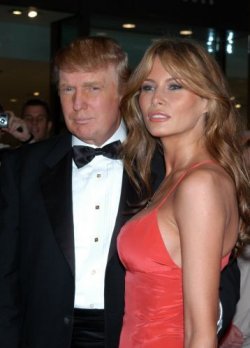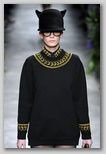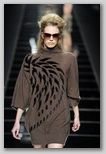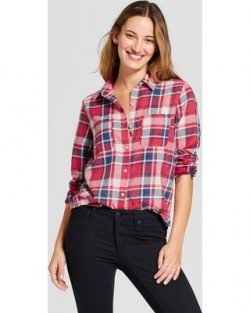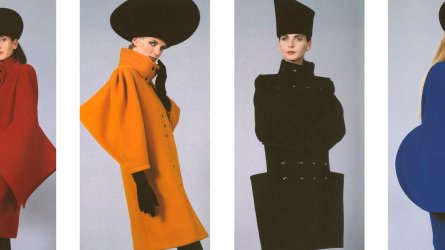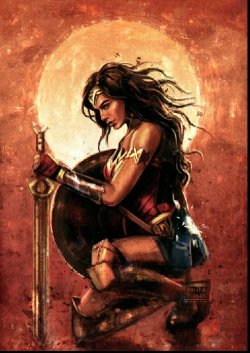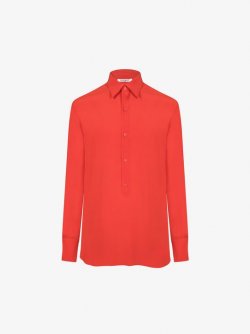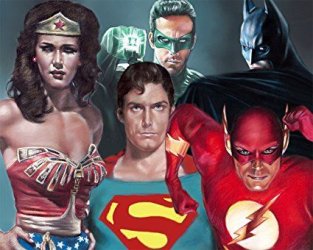- Sep 22, 2013
- 4,956
- 250
- 85
Any sociologist or historian can tell you about the global impact cinema has had on the collective human psyche. Species-symbolic films around the world such as La Dolce Vita (Fellini), Citizen Kane (Welles), Breathless (Godard), and Aparajito (Ray) remind us of the power of imagery in the social matrix.
Movies capture daydreams and are therefore 'totems' of dialogue (and etiquette!). We look at movies to think about our inner-selves as well as our social consciousness.
Since America is the most pluralistic land, Hollywood (USA) has become the beacon for movie-making representative of the concerns of the entire species (arguably).
That's why Hollywood(USA) movies about social trends (America's Sweethearts), public controversy (The People vs. Larry Flynt), and politics (True Colors) reveal our new age interest in networking and sharing complicated thoughts.
When we think of the 'principle' of shared daydreams (e.g., Divorce Court), we realize that governance is wed to passion, since expressiveness in the social matrix creates interest in voting, which is why political campaigns can be so 'entertaining.'
So if this new age of ours is marked by a fascination with disclosure, honesty, sharing, and therefore networking, how do we eulogize 'social propaganda' from the era of Caesar through the era of the United Nations?
Such a question is certainly valuable since we're currently 'negotiating' why TrumpUSA is representative of commercial aesthetics and not consumerism vanities (since Donald Trump was a capitalism-baron, casino-mogul, and celebrity-diplomat). After all, this great 'social network' should not feel...juvenile!

====
A historian might recount the passionate early days of the Russian Revolution and how the great 'Communist Captain' Lenin aroused Russian people to think 'outside-the-box' and imagine how commerce could be a teamwork-oriented 'mission.' Of course, the USSR plummeted after that into frailties regarding dictatorship-flaws (i.e., Stalinism), economic challenges (i.e., Cold War), and eventual failures to contend with democratic stalwarts (i.e., USA). However, we remember the 'progression' of the early Russian 'radicals' (i.e., Lenin) to the establishment of a Communist 'super-state' martialled by one 'regal' dictator (i.e., Stalin) and we think about the 'nature' of governance (and propaganda) itself!

Americans are Christianity-oriented and new age films explore complex ideas regarding the 'hairy' issues of religion and therefore spirituality. Americans care about democracy and free-speech, so we look at Hollywood (USA) movies about religion (i.e., Agnes of God) as symbolic of a very American interest in disclosure-based propaganda (e.g., WikiLeaks).

American comic book writers likewise opt to focus on themes about terrorism, rebelliousness, and social anarchy to reflect America's peculiar interest in 'negotiating' free-speech with social control --- arguably the greatest 'challenge' of a true democracy. American comic books, particularly Captain America and G.I. Joe: A Real American Hero, focus on the democratic ideals regarding the 'evolution' of leadership, statesmanship, and individual liberties. We look to these social art presentations as public 'symbols' of governance-discourse. Today, diplomats of the United Nations might refer to Captain America in comments about public expressions regarding 'political passion.'

Americans have changed the way they make movies, over and over. There were many 'epochs' in American cinema, and movie historians/scholars may differentiate between these periods by titling the eras as 'The Golden Age of Hollywood' or 'The Silver Age of Hollywood' or even 'The New Age of Hollywood.' Because Hollywood (USA) invests in expressive film-making, the evolution of movie-themes reflects the evolution of democracy-discourse in America. So earlier periods saw films of patriotism-meditation (e.g., Citizen Kane), while this new age of networking-intrigue and publicity-discourse/controversy sees films of privacy-meditation (e.g., Fight Club).

As policies and populations change, so do the demands on the government. We might yearn for radical philosophy-oriented statesmen (e.g., Lenin) to become the 'governance super-figureheads' we craved during moments of forgivable weakness rather than the unbearable dictators we ended up enduring (e.g., Stalin). The challenge of networking-focused modern institutions such as the United Nations therefore becomes a negotiation of aesthetics (e.g., Consumer Reports) with etiquette (e.g., Amnesty International).
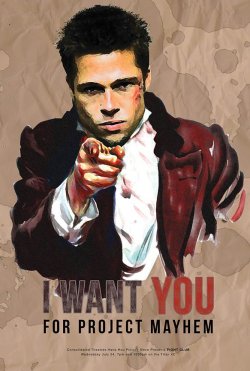
Animated films marketed to youngsters and kids offer stories about idealizing the 'destiny' of global networking and technology. If we're to 'idolize' IBM, Samsung, and Apple, we have to be sure that our youngsters believe in the 'beautiful face' of modern ingenuities. That requires an appreciation of how new age leadership is connected to the 'socialization' or 'normalization' of art, which is why censorship is the greatest concern in this era of globalization/discourse.

A meeting at the Security Council of the United Nations might feature a discussion about the development of modern biochemical weapons and how the threat of terrorism makes warfare seem very much like Armageddon. We look to the Security Council for a balanced meditation on the complexities of new age politics and globalization-related fears/concerns. The Trump Administration (USA) is responsible for commerce-idealism in the eyes/minds of many, so how do we balance capitalism with psychiatry?

Stand in front of your bedroom mirror and look at your reflection and ask yourself on this August Sunday (one of the final summer Sundays), "Do I feel good about my daydreams regarding this new 'social network' in America and worldwide?" Before you decide to mindlessly shuffle through your Facebook pages, consider why an American 'terrorism' comic book story about D.C. in panic (e.g., Captain America v Red Skull) represents modernism imagination. After all, isn't leadership/confidence really about...intelligibility? What would U.S. President Donald Trump say? He tweeted today, "Study the late Joseph McCarthy, because we are now in period with Mueller and his gang that make Joseph McCarthy look like a baby! Rigged Witch Hunt!" (Twitter).
====

Movies capture daydreams and are therefore 'totems' of dialogue (and etiquette!). We look at movies to think about our inner-selves as well as our social consciousness.
Since America is the most pluralistic land, Hollywood (USA) has become the beacon for movie-making representative of the concerns of the entire species (arguably).
That's why Hollywood(USA) movies about social trends (America's Sweethearts), public controversy (The People vs. Larry Flynt), and politics (True Colors) reveal our new age interest in networking and sharing complicated thoughts.
When we think of the 'principle' of shared daydreams (e.g., Divorce Court), we realize that governance is wed to passion, since expressiveness in the social matrix creates interest in voting, which is why political campaigns can be so 'entertaining.'
So if this new age of ours is marked by a fascination with disclosure, honesty, sharing, and therefore networking, how do we eulogize 'social propaganda' from the era of Caesar through the era of the United Nations?
Such a question is certainly valuable since we're currently 'negotiating' why TrumpUSA is representative of commercial aesthetics and not consumerism vanities (since Donald Trump was a capitalism-baron, casino-mogul, and celebrity-diplomat). After all, this great 'social network' should not feel...juvenile!
====
A historian might recount the passionate early days of the Russian Revolution and how the great 'Communist Captain' Lenin aroused Russian people to think 'outside-the-box' and imagine how commerce could be a teamwork-oriented 'mission.' Of course, the USSR plummeted after that into frailties regarding dictatorship-flaws (i.e., Stalinism), economic challenges (i.e., Cold War), and eventual failures to contend with democratic stalwarts (i.e., USA). However, we remember the 'progression' of the early Russian 'radicals' (i.e., Lenin) to the establishment of a Communist 'super-state' martialled by one 'regal' dictator (i.e., Stalin) and we think about the 'nature' of governance (and propaganda) itself!
Americans are Christianity-oriented and new age films explore complex ideas regarding the 'hairy' issues of religion and therefore spirituality. Americans care about democracy and free-speech, so we look at Hollywood (USA) movies about religion (i.e., Agnes of God) as symbolic of a very American interest in disclosure-based propaganda (e.g., WikiLeaks).

American comic book writers likewise opt to focus on themes about terrorism, rebelliousness, and social anarchy to reflect America's peculiar interest in 'negotiating' free-speech with social control --- arguably the greatest 'challenge' of a true democracy. American comic books, particularly Captain America and G.I. Joe: A Real American Hero, focus on the democratic ideals regarding the 'evolution' of leadership, statesmanship, and individual liberties. We look to these social art presentations as public 'symbols' of governance-discourse. Today, diplomats of the United Nations might refer to Captain America in comments about public expressions regarding 'political passion.'

Americans have changed the way they make movies, over and over. There were many 'epochs' in American cinema, and movie historians/scholars may differentiate between these periods by titling the eras as 'The Golden Age of Hollywood' or 'The Silver Age of Hollywood' or even 'The New Age of Hollywood.' Because Hollywood (USA) invests in expressive film-making, the evolution of movie-themes reflects the evolution of democracy-discourse in America. So earlier periods saw films of patriotism-meditation (e.g., Citizen Kane), while this new age of networking-intrigue and publicity-discourse/controversy sees films of privacy-meditation (e.g., Fight Club).
As policies and populations change, so do the demands on the government. We might yearn for radical philosophy-oriented statesmen (e.g., Lenin) to become the 'governance super-figureheads' we craved during moments of forgivable weakness rather than the unbearable dictators we ended up enduring (e.g., Stalin). The challenge of networking-focused modern institutions such as the United Nations therefore becomes a negotiation of aesthetics (e.g., Consumer Reports) with etiquette (e.g., Amnesty International).

Animated films marketed to youngsters and kids offer stories about idealizing the 'destiny' of global networking and technology. If we're to 'idolize' IBM, Samsung, and Apple, we have to be sure that our youngsters believe in the 'beautiful face' of modern ingenuities. That requires an appreciation of how new age leadership is connected to the 'socialization' or 'normalization' of art, which is why censorship is the greatest concern in this era of globalization/discourse.

A meeting at the Security Council of the United Nations might feature a discussion about the development of modern biochemical weapons and how the threat of terrorism makes warfare seem very much like Armageddon. We look to the Security Council for a balanced meditation on the complexities of new age politics and globalization-related fears/concerns. The Trump Administration (USA) is responsible for commerce-idealism in the eyes/minds of many, so how do we balance capitalism with psychiatry?
Stand in front of your bedroom mirror and look at your reflection and ask yourself on this August Sunday (one of the final summer Sundays), "Do I feel good about my daydreams regarding this new 'social network' in America and worldwide?" Before you decide to mindlessly shuffle through your Facebook pages, consider why an American 'terrorism' comic book story about D.C. in panic (e.g., Captain America v Red Skull) represents modernism imagination. After all, isn't leadership/confidence really about...intelligibility? What would U.S. President Donald Trump say? He tweeted today, "Study the late Joseph McCarthy, because we are now in period with Mueller and his gang that make Joseph McCarthy look like a baby! Rigged Witch Hunt!" (Twitter).
====


